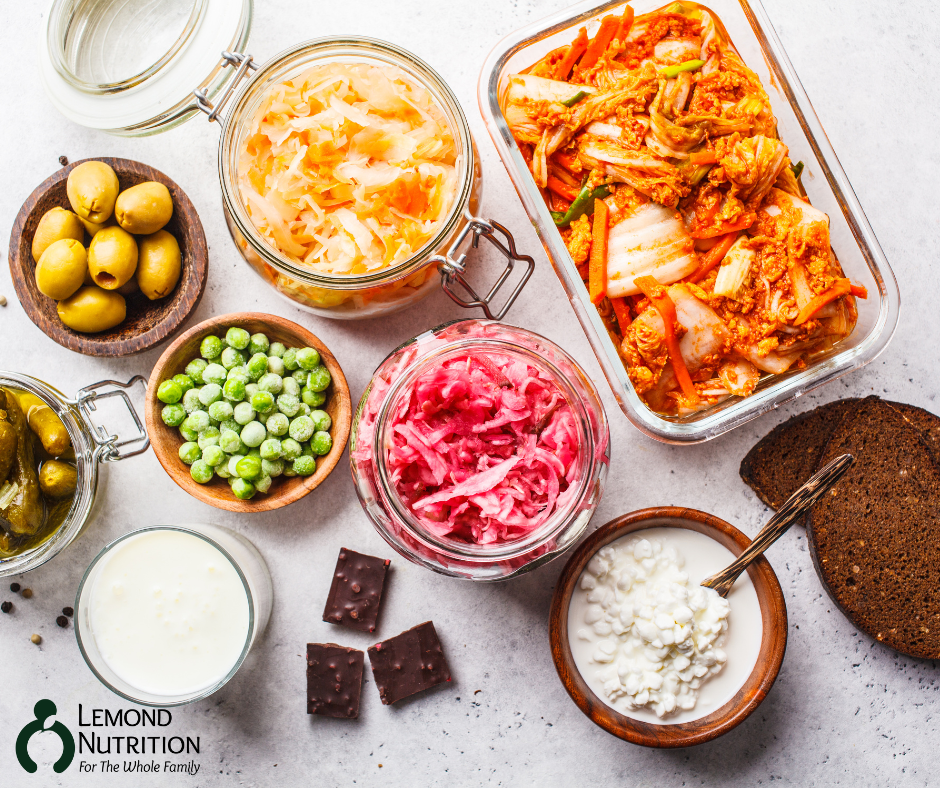The Transition to Independence
At Lemond Nutrition, we have the opportunity to serve a wide array of people from all different backgrounds. Among the different age groups there are often commonalities regardless of what brings the patient or client in to see us. One of the most notable trends that I find is that the teenage and even early adult population are typically seeking to build independence, but are lacking in skills with planning, grocery shopping, and cooking. To help better prepare our children for the future, it is important to start teaching them these tasks at an early age. If you have been following our social media, you have probably come across several tips on how to get your loved ones involved.
When we meet with our clients, we set goals at the end of the session. I strive to challenge kids that I meet with to start helping pack their lunch as soon as possible. While this may take a little more time and effort, it is often met with the child feeling excited and more empowered. As you prepare your teenager or young adult to go off to college or leave the nest, it is common to want to help them learn about how to better nourish the body. With this goal, action must follow. Check out my tips below on how you can help build independence through having your teen get more involved.
Assign Kitchen Tasks.
One common goal I like to set with my younger patients is to do kitchen tasks to get them more involved. Depending on the age of your child, the tasks assigned will vary from something as simple as mixing to doing more advanced level tasks like cooking a dish. Aim to have your child or teen assigned one kitchen task per day. Need help on establishing appropriate tasks for younger kiddos? Here are some ideas!
Teach Them To Grocery Shop.
If you are anything like me, some of your first experiences with grocery shopping with your own money ranged from looking for the cheapest items on the shelf to getting home with stuff that will not last half of the week. One of the trickiest things as a young adult is knowing how much to buy. I often find that adults struggle with this as well, which leads to not wanting to purchase those “healthy” foods again. Teach your teens how to plan out meals to prevent waste (both food and money). Help them learn how to construct a practical and productive grocery list using the meals that they have planned. Don’t forget to stress the importance of checking the pantry/freezer/refrigerator in advance. This is also a great opportunity to help guide them on purchasing a variety: fresh, canned, and frozen.
Have Them Cook A Meal On Their Own.
I often find that several of my teenage patients do not know how to prepare meals due to lack of practice. Due to their lack of practice, they tend to lack the confidence in the kitchen and tend to shy away from wanting to cook. Once we set a goal to cook, I typically find that they get excited to plan out what they will be preparing or serving. There seems to be a sense of pride, as there should be! To prepare your teen to make a whole meal, it is important to get them involved by taking on smaller tasks at first. Encourage them to get in the kitchen to learn how to make some of their favorite dishes.
Thinking back to your first foray into adulthood, what did you find most difficult with regards to feeding the body? Did you find it easy or was it much more difficult than expected? What opportunities did you have that helped prepare you? If you would like more information on how to help your teen or young adult get ready for the transition into independence, give us a call!
About Lauren Martin
No information on this site should be used to diagnose, treat, prevent, or cure any disease or condition.










